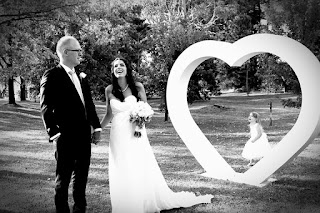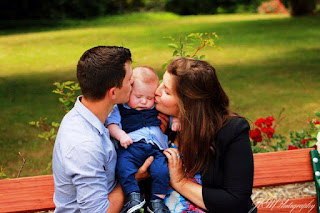When a Child's Parent has PTSD
Jennifer L. Price, PhD
Introduction
Researchers have examined the impact of Veterans' PTSD symptoms on family relationships, and on children of Veterans in particular. Understanding how these symptoms affect relationships can help families and children of Veterans cope with difficulties, should they arise. Although much of the research described here has been conducted with children of Vietnam Veterans, findings from this body of research may generalize to children of Veterans from other eras as well as non-Veterans with PTSD.
How might a Veteran's PTSD symptoms affect his or her children?
Re-experiencing symptoms
Individuals who have PTSD often "re-experience"' traumatic events through vivid daytime memories or dreams. Re-experiencing can occur suddenly and without intention, and it is typically accompanied by intense emotions, such as grief, guilt, fear, or anger. Sometimes these intrusions can be so strong or vivid that the individual believes the trauma is reoccurring.
These symptoms can be frightening not only for the individual experiencing them but also for children who witness them. Children may not understand what is happening or why, and they may start to worry about their parent's well-being. Children may also worry that their parent cannot properly care for them.
Avoidance and numbing symptoms
Because the re-experiencing symptoms characteristic of PTSD are so uncomfortable, people who have been traumatized tend to try to avoid thinking about the traumatic event. They may also attempt to avoid places and experiences that could trigger upsetting memories. As a result, individuals with PTSD may not want to do things or go places, such as to the store, to the movies, or out to dinner. Children may feel that their parent does not care about them when the reality is that the parent is avoiding places that are just too frightening. In addition to these active avoidance strategies, traumatized individuals often struggle with experiencing positive emotions and may feel "cut off" from other people, including family members.
These avoidance and numbing symptoms can have a direct impact on children. For example, when a parent with PTSD withdraws from family members and has trouble feeling positive emotions, children can inaccurately interpret this as the parent not being interested in them or loving them, even though the parent may try to indicate otherwise.
Hyperarousal symptoms
Individuals with PTSD tend to have a high level of anxiety and arousal, which shows up as difficulty sleeping, impaired concentration, and being easily startled. They tend to have a high level of irritability and may experience an exaggerated concern for their own safety and the safety of their loved ones. Parents with PTSD can therefore tend to be overprotective. Irritability and low frustration tolerance can make a parent seem hostile or distant, again making children question the parent's love for them. This perception is simply a misunderstanding of the reasons behind the symptoms.
How do children respond?
A parent's PTSD symptoms can be directly linked to their child's responses. Children can respond in certain ways:
The "over-identified" child might feel and behave just like their parent as a way of trying to connect with the parent. Such a child might show many of the same symptoms as the parent with PTSD.
The "rescuer" child takes on the adult role to fill in for the parent with PTSD. The child acts too grown-up for his or her age.
The "emotionally uninvolved" child gets little emotional help. This results in problems at school, depression, anxiety (worry, fear), and relationship problems later in life.
What are some problems children of Veterans with PTSD might experience?
Social and behavioral problems
Research in Vietnam Veteran's families has revealed that children of Veterans with PTSD are at higher risk for behavioral, academic, and interpersonal problems. Their parents tend to view them as more depressed, anxious, aggressive, hyperactive, and delinquent compared to children of non-combat Vietnam era Veterans who do not have PTSD. In addition, the children are perceived as having difficulty establishing and maintaining friendships. Chaotic family experiences can make it difficult to establish positive attachments to parents, which can make it difficult for children to create healthy relationships outside the family. There is also research showing that children may have particular behavioral disturbances if their parent Veteran participated in abusive violence (i.e., atrocities) during combat service (5).
Some research has found that PTSD is related to an increased likelihood of violence in the home. It is important to note, however, that the majority of Veterans have violence-free homes and that most of this research is correlational. For example, one study found more violence in families of Vietnam Veterans with PTSD than in families of Veterans without PTSD, including increased violent behavior of the child (1). Several studies have examined the relationship between fathers' combat-related PTSD and violent behaviors and their children's functioning (2, 3, 4).
Emotional problems and secondary traumatization
Although not common, children may start to experience the parent's PTSD symptoms (e.g., start having nightmares about the parent's trauma) or have PTSD symptoms related to witnessing their parent's symptoms (e.g., having difficulty concentrating at school because they're thinking about the parent's difficulties). Some researchers describe the impact that a parent's PTSD symptoms have on a child as secondary traumatization (2). It is also possible that children develop PTSD symptoms of their own, especially if there is trauma or violence in the home. Research on Vietnam era Veterans found that children of Veterans with PTSD are at higher risk for being depressed and anxious than non-combat Veterans' children. Having a supportive parent or caregiver can offset these problems and enhance recovery in children with PTSD or other emotional concerns.
Problems may continue into adolescence
Adolescent children of Veterans with PTSD may be similarly affected by their parent's symptoms. Although the research cannot point to cause and effect, compared to adolescents whose fathers were not Veterans, adolescents whose fathers served in combat in Vietnam showed poorer attitudes toward school, more negative attitudes toward their fathers, lower scores on creativity and higher levels of depression and anxiety (6). In spite of these differences, the two groups of adolescents were actually quite similar on a range of other measures of social and personality adjustment.
Can children get PTSD from a parent?
Although not common, it is possible for children to display symptoms of PTSD because they are upset by their parent's symptoms (secondary traumatization). Some researchers have investigated the notion that trauma and the symptoms associated with it can be passed from one generation to the next. Researchers describe this phenomenon as intergenerational transmission of trauma. Much research has been conducted with victims of the Holocaust and their families (see Kellerman [7] for review), and some studies have expanded on these ideas to include families of combat Veterans with PTSD.
Ancharoff, Munroe, and Fisher (8) described several ways to understand the mechanisms of intergenerational transmission of trauma. These mechanisms are silence, overdisclosure, identification, and reenactment.
When a family silences a child, or teaches him/her to avoid discussions of events, situations, thoughts, or emotions, the child's anxiety tends to increase. He or she may start to worry about provoking the parent's symptoms. Without understanding the reasons for their parent's symptoms, children may create their own ideas about what the parent experienced, which can be even more horrifying than what actually occurred.
Overdisclosure can be just as problematic. When children are exposed to graphic details about their parent's traumatic experiences, they can start to experience their own set of PTSD symptoms in response to the images generated.
Similarly, children who live with a traumatized parent may start to identify with the parent such that they begin to share in his or her symptoms as a way to connect with the parent.
Children may also be pulled to reenact some aspect of the traumatic experience because the traumatized parent has difficulty separating past experiences from present.
What should a parent do?
Parents can help children by understanding how specific symptoms of PTSD affect relationships and by using the resources identified below. Preventive interventions can be helpful and include explaining to family members the possible impact of intergenerational transmission of trauma before it happens. Education about the potential impact on children can also be a useful response when a child is already being affected by his or her parent's trauma history.
An excellent first step in helping children cope with a parent's PTSD is to explain the reasons for the traumatized parent's difficulties, without burdening the child with graphic details. It is important to help children see that the symptoms are not related to them; children need to know they are not to blame. How much a parent says should be influenced by the child's age and maturity level. Some parents may prefer to have help with what they say to their children, and assistance through therapy or written materials can be helpful.
In addition to this basic first step, there are multiple treatment options available for affected families. Treatment can include individual treatment for the Veteran, as symptom improvement for the person suffering from PTSD would also benefit the family. Family therapy can support the parent who is struggling with symptoms and teach family members how to get their own needs met. Family therapy is typically more effective if the Veteran with PTSD has first received some type of trauma therapy so that he or she is better able to focus on helping the children during family sessions (9).
Children may benefit from individual therapy as well, with variations based on the child's age (e.g., play therapy for younger children, talk therapy for older children and adolescents). Each family is unique, and decisions about what kind of treatment to seek, if treatment is needed, can be complicated. The most important thing is to help each member of the family, including the children, have a voice in expressing what he or she needs.
VA has taken note of the research showing the challenges that families can face when dealing with PTSD, as well as the importance of family in supporting the Veteran's recovery from PTSD. The Caregivers Act was enacted in 2010 and mandated VA to document the effects on family members and assess caregiver needs and resources. VA PTSD programs and Vet Centers across the country are beginning to offer group, couples, and individual programs for families of Veterans.
References
Jordan, B. K., Marmar, C. B., Fairbank, J. A., Schlenger, W. E., Kulka, R. A., Hough, R. L., et al. (1992). Problems in families of male Vietnam veterans with posttraumatic stress disorder. Journal of Consulting and Clinical Psychology, 60, 916-926.
Cosgrove, L., Brady, M. E., & Peck, P. (1995). PTSD and the family: Secondary traumatization. In D. K. Rhoades, M. R. Leaveck, & J. C. Hudson (Eds.), The legacy of Vietnam veterans and their families: Survivors of war: catalysts for change (pp. 38-49). Washington: Agent Orange Class Assistance Program.
Harkness, L. (1993). Transgenerational transmission of war-related trauma. In J. P. Wilson & B. Raphael (Eds.), International handbook of traumatic stress syndromes (pp. 635-643). New York: Plenum Press.
Parsons, J., Kehle, T. J., & Owen, S. V. (1990). Incidence of behavior problems among children of Vietnam War veterans. School Psychology International, 11, 253-259.
Rosenheck, R., & Fontana, A. (1998). Transgenerational effects of abusive violence on the children of Vietnam combat veterans. Journal of Traumatic Stress, 11, 731-742.
Dansby, V. S., & Marinelli, R. P. (1999). Adolescent children of Vietnam combat veteran fathers: A population at risk. Journal of Adolescence, 22, 329-340.
Kellerman, N. (2001). Psychopathology in children of Holocaust survivors: A review of the research literature. Israel Journal of Psychiatry and Related Sciences, 38, 36-46.
Ancharoff, M. R., Munroe, J. F., & Fisher, L. M. (1998). The legacy of combat trauma: Clinical implications of intergenerational transmission. In Y. Danieli (Ed.), International handbook of multigenerational legacies of trauma (pp. 257-275). New York: Plenum Press.
Harkness, L. (1991). The effect of combat-related PTSD on children. National Center for PTSD Clinical Quarterly, 2(1).





































